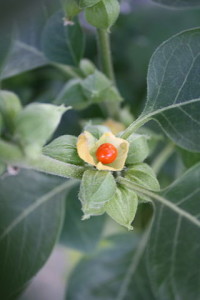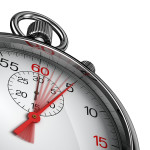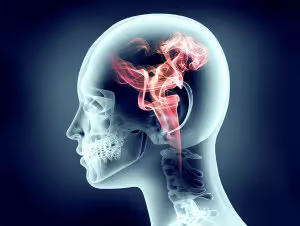Table of Contents
Ashwagandha (Withania somnifera) is one of the most powerful herbs powerful Ayurvedic herbs in healing. One of the main benefits of Ashwagandha is its remarkable stress-relieving properties. And stands shoulder to shoulder with some of the most potent drugs used to treat depression and anxiety.
In Sanskrit, Ashwagandha means “smell of horse”. Meaning this herb imparts the strength and vigor of a stallion.
Ashwagandha is native to India, Pakistan and Sri Lanka. And is now being grown in other regions including the United States.
Ashwagandha extracts helps protect your central nervous system and maintain brain health. It is a promising alternative for aging and neurodegenerative pathologies treatment including Alzheimer’s and Parkinson’s.
As an antioxidant, Ashwagandha seeks out and destroys free radicals. Free radicals have been implicated in many age-related diseases. There’s even some emerging evidence that Ashwagandha offers anti-cancer benefits
for brain tumors. Even though so much is out there stating that the active principles and underlying molecular mechanism (s) remain largely unknown for this ancient Ayurvedic herb.
Get ready to explore how Ashwagandha benefits your brain because we will go as deep as possible.
Ashwagandha helps:
- Reduce Stress: Ashwagandha helps reduce anxiety and depression. It reduces the stress hormone cortisol, lowers blood sugar levels, and improves lipid profiles.[i]
- Neuronal Regeneration: Ashwagandha helps regenerate axons and dendrites of brain nerve cells. And helps reconstruct synapses, the junctions where nerve cells communicate with other cells.[ii] Boosting memory and restoring neural networks affected by neurodegenerative disease.
- Neurotransmitters: Ashwagandha extract inhibits acetylcholinesterase. The enzyme responsible for breaking down the key neurotransmitter acetylcholine.[iii] Boosting memory, learning and cognition.
Overview

Ashwagandha (Withania somnifera) is one of the most powerful herbs in Ayurvedic healing. This Indian traditional home medicine as an herbal remedy has remarkable anti-depressant qualities. And has been shown to be as good as many prescription pharmaceuticals in treating depression and anxiety.
Ashwagandha is often referred to as “Indian ginseng” because of its rejuvenating properties. But botanically, Ashwagandha and ginseng are unrelated.
Native to India, Pakistan and Sri Lanka. Ashwagandha is now being grown in other regions including the United States.
Ashwagandha is in the same family as the tomato. It’s a small woody shrub with oval leaves, and five-petal yellow flowers. The fruit is red and the size of a raisin. The plant is also known as the “Winter Cherry”.
Ashwagandha is known as an adaptogen. Which means it helps your body adapt to stress, both mental and physical.
The Indian Materia Medica lists Ashwagandha for:
- general debility
- impotence
- general aphrodisiac purposes
- brain fatigue
- low sperm count
- nervous exhaustion
- where general vigor must be restored.
Ashwagandha extract has been shown to be an effective antioxidant in the brain. Clearing the cellular waste implicated in Alzheimer’s Disease.[iv]
Is also boosts memory and cognition. By reducing stress and increasing acetylcholine. And regeneration of nerve networks in the brain.
How does Ashwagandha Work in the Brain?
Ashwagandha boosts brain health and function in several ways. But two in particular stand out.
- Ashwagandha enhances GABA receptors and regulates serotonin in the brain. It appears to work on neuron receptors, enabling GABA to connect easier. This inhibits the signals present under a stress response in the brain. Anxiety is reduced.
A study was conducted at The Canadian College of Naturopathic Medicine with 75 volunteers with moderate to severe anxiety. Ashwagandha produced a significant decrease in anxiety levels over the control group.[v]
- Ashwagandha improves cognitive and psychomotor performance in a healthy brain.
Researchers at Nizam’s Institute of Medical Sciences in Hyderabad, India worked with 20 healthy male volunteers. In this double-blind, placebo-controlled trial participants were given 250 mg capsules of standardized Ashwagandha extract for 14 days.
Significant improvements in reaction time were reported at the end of the trial. The study suggests that Ashwagandha extract improves cognitive and psychomotor (physical reaction) performance even when you’re in the best of health.[vi]
How things go bad
Chronic stress and cortisol can damage your brain. Neuroscientists at the University of California, Berkeley found that chronic stress triggers long-term changes in brain structure and function.[vii]
Chronic stress changes neural networks. Cortisol creates a domino effect that hard-wires pathways between the hippocampus and amygdala. (The amygdala (lizard brain) is the area responsible for your fight-or-flight response).
This hard-wiring caused by stress is not the way the brain was designed. But chronic, ongoing stress tricks the brain into rebuilding circuits and hunkering down for the long haul.
This re-wiring appears to be permanent. Unless you intervene with something like Ashwagandha.
 Chronic stress seems to ‘flip a switch’ in stem cells in the brain. And turns them into a type of cell that prevents connections to the prefrontal cortex. Preventing improved learning and memory.
Chronic stress seems to ‘flip a switch’ in stem cells in the brain. And turns them into a type of cell that prevents connections to the prefrontal cortex. Preventing improved learning and memory.
And laying down the scaffolding linked to anxiety, depression and PTSD (Post Traumatic Stress Disorder).
↓ Chronic stress coats neurons in myelin
↓ Chronic stress reduces the number of neurons
↓ Gray matter decreases and white matter increases.
Under conditions of chronic stress and excess cortisol, your brain’s neurons are coated (or sheathed) in myelin.
Under healthy conditions this “sheathing” is a protective measure. But this excessive sheathing is likely an evolutionary measure made to reinforce the connection between the hippocampus and amygdala. Improving the fight-or-flight response during extended periods of threat or attack.
In the modern world, chronic stress hijacks your fight-or-flight response system. It backfires in daily life in which you are not in physical danger.
Ashwagandha benefits
Ashwagandha undoes damage to the brain caused by chronic stress. And helps keep it healthy.
Ashwagandha has such beneficial activities for cognitive function. Glycowithanolides, one of the many compounds found in Ashwagandha, reduces cortisol. And overall energy levels are enhanced through optimizing mitochondrial function.
It also has GABA-mimicking effects in the brain. Comparable to the effects of prescription benzodiazepines like lorazepam (Ativan).
Ashwagandha can also help prevent and repair damage caused by Alzheimer’s, Parkinson’s and Huntington’s disease. Through its antioxidant and inflammation-reducing mechanisms.
Ashwagandha even provides protection and regeneration of neurons during opiate and heroin withdrawal. And eases withdrawal symptoms.
 In Ayurvedic medicine, Rasayana herbs are used to promote a youthful state of physical and mental health. The ancients considered Medhya Rasayana herbs to be working with higher brain function. These are mind-rejuvenating herbs.
In Ayurvedic medicine, Rasayana herbs are used to promote a youthful state of physical and mental health. The ancients considered Medhya Rasayana herbs to be working with higher brain function. These are mind-rejuvenating herbs.
Of the 8 or 9 most cherished herbal remedies, Ashwagandha is the highest or most prominent of Ayurvedic Rasayana herbs. Acting as an adaptogen, rejuvenating the nervous system, and boosting the body’s resilience to stress.
How does Ashwagandha feel?
Ashwagandha users report:
-
- Ashwagandha as a stress-reliever. If you are experiencing severe fatigue and brain fog, it’s likely stress. Chronic or severe stress can disguise itself in many ways. Including feeling abnormally fatigued. You find that you are not sleeping well. Or don’t feel rested and refreshed when waking up in the morning. Even after taking a sleeping pill. Many report a rapid change in energy and motivation as soon as they take Ashwagandha. Others won’t feel the effects for a couple of weeks before relief sets in. You’ll know Ashwagandha is working when you wake up in the morning feeling refreshed. And eagerly looking forward to starting your day.
-
- Ashwagandha as an anti-anxiety aid. As an anti-anxiety aid users say they feel their self-confidence has been restored. Your speech will feel more fluid and easier, especially in public settings. No more panic attacks.
- Ashwagandha as an antidepressant. Depression, even if it’s not professionally diagnosed, can destroy your life. Ashwagandha users say it is the best antidepressant they’ve ever used. Their energy is restored, motivation is back, and they’re able to focus.
Ashwagandha works on many levels in the brain. Cortisol levels are stabilized. And the damage to your brain begins to correct itself. Acetylcholine levels rise so you’re able to think clearly again.
Neurons get repaired, and cognition and memory return to levels you experienced when you were younger. And GABA receptors are re-activated producing a calming effect.
Ashwagandha Clinical Research
Researchers at Asha Hospital in Hyderabad, India did a double-blind, randomized, placebo-controlled trial with 64 subjects who had a history of chronic stress. The study group took a 300 mg capsule of full-spectrum Ashwagandha root twice a day for 60 days.
Follow up calls to participants were done on the 15th, 30th, 45th and 60th day of the trial. Researchers reported serum cortisol levels were substantially reduced.
 The report concluded “that a high-concentration full-spectrum Ashwagandha root extract safely and effectively improves an individual’s resistance towards stress and thereby improves self-assessed quality of life”.[viii]
The report concluded “that a high-concentration full-spectrum Ashwagandha root extract safely and effectively improves an individual’s resistance towards stress and thereby improves self-assessed quality of life”.[viii]
Ashwagandha as a nootropic
One study done in a lab in India subjected laboratory mice to electroconvulsive shock treatment. Or were given scopolamine to induce amnesia (memory loss).
Both sets of mice were given Ashwagandha extract daily after the shock or chemical treatments. Ashwagandha extract restored their memory and motor skills.[ix]
Ashwagandha as an antidepressant
Scientists did a study on rats to compare Ashwagandha with the popular benzodiazepine antidepressant lorazepam (Ativan). And the tricyclic antidepressant imipramine (Tofranil).
Researchers gave the rats either Ashwagandha, lorazepam or imipramine. 30 minutes later they put the rats through a maze, had them interacting socially, and even forced them to swim.
They concluded that as a mood stabilizer, Ashwagandha worked on depression and anxiety as well as either of the two antidepressants.[x]
Ashwagandha Dosage
Ayurvedic Pharmacopoeia of India recommends 3 – 6 grams daily of standard ground Ashwagandha powder.
- For arthritis: 250 – 500 mg of extract (4-5% withanolides)
- For antioxidant protection: 100 – 200 mg of extract (4-5% withanolides)
- For immunity: 100 – 200 mg of extract (4-5% withanolides)
- For relaxation: 250 – 500 mg of extract (4-5% withanolides)
- For stress: 250 – 500 mg of extract (4-5% withanolides)
- For sexual performance: 250 – 500 mg of extract (4-5% withanolides)
For higher Ashwagandha doses like 500 mg, take 250 mg in the morning and another 250 mg early afternoon. And note the distinction between standard ground Ashwagandha powder and an extract. The extract is much more concentrated.
Ashwagandha Side Effects
Note: Ashwagandha stimulates your thyroid hormones. So if you are hypothyroid, use Ashwagandha with caution. And check with your endocrinologist to be safe.
Ashwagandha is non-toxic at moderate doses. If you are pregnant do not use Ashwagandha as it could cause a miscarriage. This herb is an adaptogen with powerful hormonal effects.
Ashwagandha can enhance the effects of sedatives, antidepressant and anti-anxiety medications, including St. John’s wort.
It can also interact and possibly amplify the effects of immunosuppressants, blood pressure medication, and drugs used to control blood glucose levels.
Ashwagandha can boost the effects of alcohol. And do not use Ashwagandha if you have bleeding issues, or before surgery.
Other possible side effects include diarrhea, nausea, abdominal pain, drowsiness and slowed pulse. Ashwafandha anhedonia may also occur when you feel flat or emotionally numb.
And you should not use Ashwagandha if you are dealing with kidney or liver disease. A study published in 2023 and which was conducted in India found those with preexisting liver disease and who used Ashwagandha from only 2 weeks to 1 1/2 years suffered liver injury. 3 suffered liver failure and died.
Where to buy Ashwagandha
Ashwagandha is available as a powder, capsules, tincture and tea. The root and berry of the plant are used. The ground root of the herb is used as the base of an Ashwagandha supplement.
Active ingredients of Ashwagandha include alkaloids, saponins, and withanolides. Look for the percentage of active ingredients listed on the bottle or package. Typically, you’ll see something like “standardized to 4-5% of withanolides”.
NOTE: This post contains affiliate links, and I will be compensated if you make a purchase after clicking on my links.
A good choice of Ashwagandha extract is KSM66® which is a full spectrum root extract made by Ixoreal, a division of the Baldwa group of companies in India. This extract contains 5% withanolides and less than 0.1 Withaferin A (which is toxic).
You can buy it here: Click for Pure Nootropics – Ashwagandha (KSM66®)
Nootropics Expert Recommendation
Ashwagandha Extract 250 – 500 mg per day
 I recommend using Ashwagandha as a nootropic supplement.
I recommend using Ashwagandha as a nootropic supplement.
Your body does not make Ashwagandha on its own. So to get its benefits you must take it as a supplement.
Ashwagandha is especially helpful for those suffering from anxiety and stress. Studies show it helps stop and reverse the devastating effects of stress on your brain, and body. This nootropic helps repair the damage to neurons and synapses caused by chronic stress.
Ashwagandha is a powerful adaptogen. Which means it helps increase the effect of certain hormones when activity is low. And will block excess stimulation when activity is too high.
The benefits of Ashwagandha as an adaptogen helps balance cortisol in the body caused by chronic stress. Chronically elevated cortisol levels suppress immunity, create fat deposits on the belly, face and neck, reduces libido, causes bone loss, causes insulin resistance, and brain fog.
Balancing cortisol levels with Ashwagandha improves your sleep quality, immunity, stress response, organ function, reduces fatigue, and brain fog.
Ashwagandha is also helpful for those suffering from anxiety and panic disorders. A study published in Phytomedicine showed the calming effect of this herb was equal to the drug Ativan (lorazepam). Without the side effects.
You can safely take up to 750 mg of Ashwagandha extract daily if needed. Most get all the benefit they need with 500 mg. Dosed 250 mg in the morning, and another 250 mg early afternoon.
You can buy it here: Click for Pure Nootropics – Ashwagandha (KSM66®)









Join The Discussion - 500 comments
Donald
August 20, 2018
Thanks for Great site and you tube videos.
I was just wondering how long before I can see the full benefits from Ashwaganda especially for sleeping eg high cortisol at night.I have been taking it for a month now and don’t feel any benefit as of yet.Thanks in advance.
David Tomen
August 20, 2018
Donald, if you are using the recommended dosage of Ashwagandha you should see the benefits of lowered cortisol within 60 days. According to this clinical trial: https://www.ncbi.nlm.nih.gov/pubmed/23439798.
I realize this sounds like a long time and a two month investment sounds risky not knowing whether this nootropic is for you. But, if it does work then the investment is worth it.
Most adaptogens were not meant for one-off use. But meant to be used long-term. If you are using a quality product then you should eventually experience the benefit.
Donald
August 21, 2018
Thanks for your quick reply.i was just wondering can I take Ashwaganda with the pro lab sleep nootropic.
Thanks.
David Tomen
August 21, 2018
Donald, it shouldn’t be a problem stacking Ashwagandha with Performance Lab Sleep.
lucas
July 1, 2018
hi , great article
can you talk a little more about the dosage , when you say 300-500 is assuming that the extract is 4-5% withanolides right ? cause usually normal ashwagandha as I searched on internet is 2.5 , so I should take about 1000 mg day
and there is a benefit on taking daily or its better to cycle it ? if so , how should it be done ?
David Tomen
July 1, 2018
Lucas, the dosage of Ashwagandha is based on extracts with 4-5% withanolides. So a 2.5% extract would require a higher dosage for the same effect. Dosages start at 250 mg so a ‘weaker’ extract could require 500 mg for a similar benefit.
Ashwagandha is considered an “adaptogen” which means it regulates and balances various brain functions. You do not need to, nor is there any benefit in cycling an adaptogen.
lucas
July 5, 2018
thanks so much for this clear and fast answer , you are doing a good job , I will read more articles and will send more questions to learn more from you , thanks again !
Kous
April 15, 2018
Hello
long story short I’ve taken ashwagandha for 4 years (himalaya brand.
I experienced many benefits from this herb.The problem is, the last time I took ashwagandha,it caused me diminished sex drive and I didn’t notice any of the benefits I used to.In fact, I was in a bad mood and had trouble getting asleep. I stopped taking it for a while, and after starting again a few times, the same thing happened.I have never had a problem with himalaya brand.
Therefore, my questions are:
a)is there any chance this particular batch of himalaya wasn’t as pure as the previous I’ve purchased?
b)should I try sensoril or ksm66 or assume that this time it won’t be any problem?
c)Would the potency of sensoril make it mandatory to cycle more often than himalaya so as to avoid tolerance or withdrawl?
-himalaya brand constists of organic ashwagandha powder(root)–> 0.2% withanolides 0.76mg 380mg, organic ashwagandha extract(root)–> 0.5% withanolides1.4mg 280mg, organic ashwagandha supercritical–>Co2 extract(root)(withania somnifera) 8% withanolides 0.8mg 10mg
-life extension(sensoril) brand constists of sensoril ashwagandha extract(root and leaf) 125mg [32% olisaccarides,10% withanolides]
jarrow ksm66 brand constists of ksm66 ashwagandha(root extract) (withania somnifera) 300mg
Thanks in advance
David Tomen
April 16, 2018
Kous, two things could be going on here: 1. this brand is not as pure or contains contaminants which it didn’t have before, or 2. Ashwagandha no longer works for you.
If you find another brand that works for you, it may not be so much ‘tolerance’, but it is getting so accustomed to how it feels that you don’t feel any different. Does that make sense to you? For example, the first couple of times I used Aniracetam the results were amazing. But since then it provides the benefits and I’ve become used to a ‘new normal’. It’s not tolerance but a new level of performance.
I suggest you try the Life Extension brand and see how it works. Then try the Jarrow brand and see how you feel. If neither provide the type of benefit you associate with Ashwagandha then it’s possible this nootropic no longer works for you. And it’s time to try something else.
Denise
February 11, 2018
A family member had a pituitary tumor that was producing too much of some hormones, and too little of others. His case caused acromegaly and the tumor was removed. They are now adrenal insufficient and must take hydrocortisone twice daily… adjusting their dose if sick or under stress. I’ve not been able to get their endocrinologist to agree, and I understand it is risky, but what are your thoughts on Ashwagandha correcting this type of adrenal insufficiency. I want to believe it’s the answer, but I also understand the cause is different, as it was from a tumor. I’ve not been able to find information related to this situation of one using Ashwagnadha for. Any insight would be appreciated.
Thank you for your video and articles. They are most helpful.
David Tomen
February 11, 2018
Denise, I would be very cautious about trying Ashwagandha in this case. Because it has a powerful effect on hormones. And there is no way to predict how it will affect this condition in this case.
I deal with adrenal fatigue as well. Part of being hypothyroid (not caused by a tumor). I also used hydrocortisone for a couple of years. But now use Adrenal Caps by Solaray which work well and are much gentler on my stressed adrenals.
Denise
February 12, 2018
Thanks for taking the time and care to reply, David. I think I already knew the case was too risky, but I guess I had to hear it from another expert. Most on his care team have never heard of the solutions I bring up at his appointments. However, I should look at the bright side of all being stable. Maybe if I had my own blood lab he would be a test patient for me. (Kidding of course)
I’ve just discovered your YouTube channel and site a few days ago and am loving it. I might investigate the product you mentioned for myself. It was indeed a stressful time for me, hiding being scared, yet being a supportive and caring wife through it all. But truly nothing like he has endured. Thanks again for spreading your knowledge. All the best and bountiful health to you and yours!
Val
November 16, 2017
Is Ashwagandha safe to take long term? If not how long should I take it?
David Tomen
November 16, 2017
Val, as far as I can tell Ashwagandha is safe to use long term. I’ve not come across anything including clinical studies that would indicate otherwise. But as with all nootropic supplements, please take the dosage notes and side effects seriously. Especially interactions with other prescription medications.
Russ
October 27, 2017
Hello,
I’m not able to find the names of websites that are sources for the Nootropics that you describe. Where can I get them?
Thanks very much for the excellence of your site.
Russ
David Tomen
October 27, 2017
Russ, I’m not sure what websites you are referring to. Most of the nootropic supplements I review here on Nootropics Expert are available at any good vitamin shop or whole foods store. Please review this article on selecting the best supplements here > https://nootropicsexpert.com/7-tips-for-choosing-the-highest-quality-nootropic-supplements/.
Jerrie
August 21, 2017
What size capsule do I need for 250 mg? THANKS!
David Tomen
August 21, 2017
Jerrie, #1 capsule holds about 400 mg depending on the density of the powder.
https://capsuleconnection.com/capsule-sizing-info/
Robert
May 18, 2017
Thank you